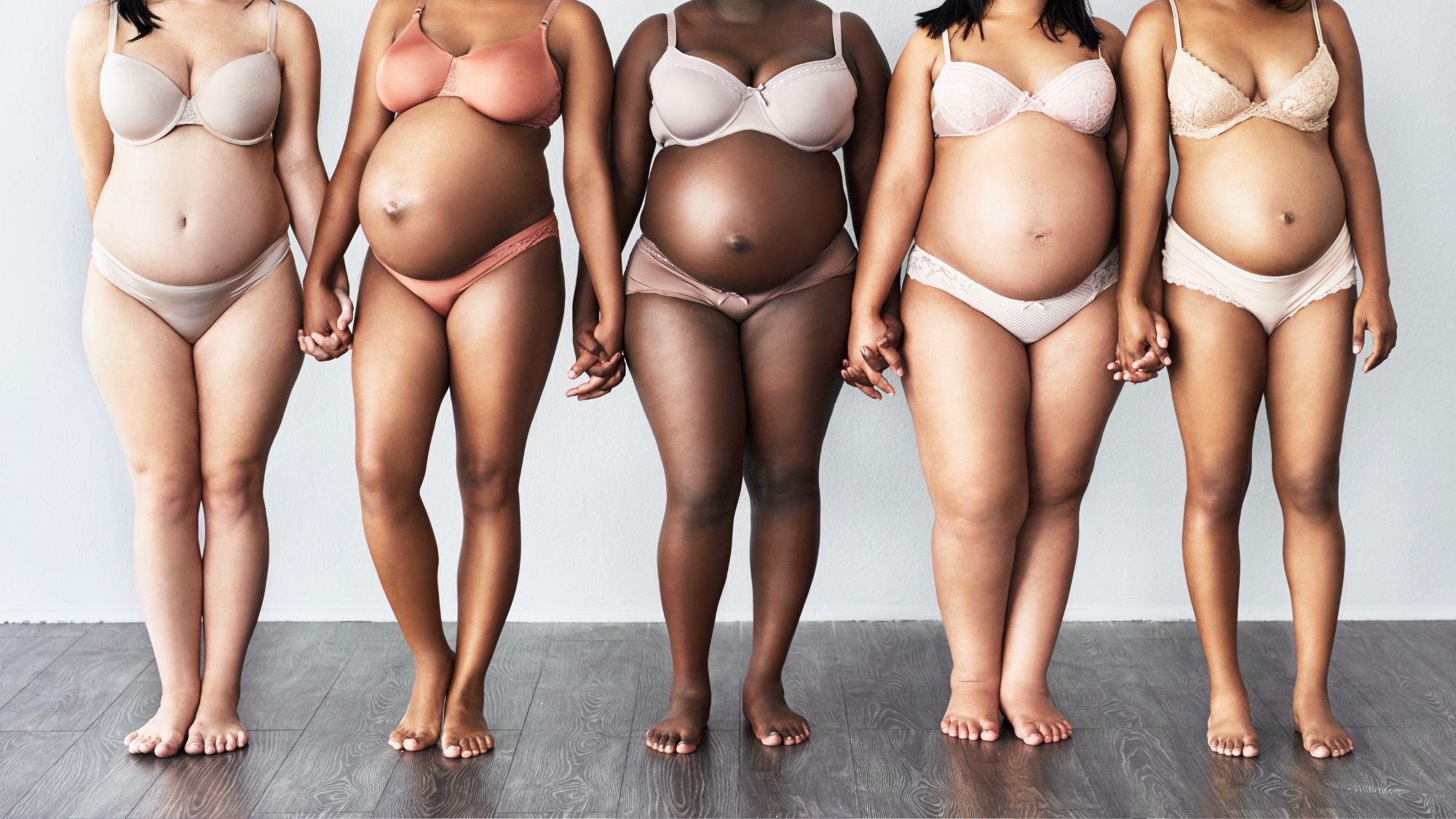I tried hypnobirthing in the hope of positively shaping my labour - and can't recommend it enough
As rising numbers of hypnotherapists help women feel empowered during labour.


Hypnobirthing has become mainstream for many mothers-to-be in the lead-up to childbirth, but now a growing number of women are turning to a more intense, targeted course of hypnotherapy to help positively shape their labour.
One of those women was me. I decided to give hypnotherapy a go before the birth of my first child last year, but a bit of background, before I share my own hypnotherapy experience. Being honest, finding out I was pregnant was something of a shock. We hadn’t been trying and I’d just returned from a crazy few months of travelling across three continents when two alarmingly unquestionable blue lines turned everything upside down.
The news was daunting but exciting. I knew that I’d adore those ten tiny toes and tufts of soft curls, plus the pregnancy was thankfully straightforward - no sickness, no overwhelming tiredness, no weird cravings for coal. Physically, I felt fine. But as the pregnancy progressed and my stomach started to swell, one lingering fear started to fog my thoughts at night: how would I deal with the birth?
Now in my late thirties, I was a late-comer to children. Almost all of my close friends had already started their families and were two, even three kids in, so I was uncomfortably accustomed to the trauma of childbirth. The horror stories had built up over the years, layering themselves like crustaceans on the hull of a ship. The five-day labours; the instrument-addled, opioid-fuelled deliveries; the emergency c-sections and painful recoveries: the picture painted was raw and unflinchingly ghoulish. When I envisioned labour, I didn’t conjure a peaceful water birth surrounded by love and expertise – I saw blood and brutality.
"I tried hypnobirthing - and believe it transformed by birth experience."
As it turns out, I’m far from alone. The Royal College of Obstetricians and Gynaecologists has reported a steady uptick in cases of tokophobia – a pathological terror of childbirth – since 2000, and The British Medical Journal estimates the disorder now affects more than 14% of women worldwide.
Yet while few develop full tokophobia, many women enter their antenatal journey on a spectrum of fear that ranges from understandably anxious to utterly terrified. It’s a condition compounded by a continual state of crisis in the NHS, with a less-than-holistic approach often reducing the process to a passive, box-ticking exercise that ignores parent’s wishes and, crucially, relegates the mother’s preferred birthing plan to nothing more than wishful thinking (at my first antenatal appointment, I was told my assigned midwife was on long-term leave. I was given a phone number I could never call, an email address I could never reach, and a dedicated professional I would never meet or speak to during the entirety of my pregnancy).
Taking control of my birth
Keen to take control of my antenatal experience, I started looking for an alternative approach. I found myself wondering if hypnotherapy might help to positively reshape my inner narrative and, ultimately, the birth itself.
Celebrity news, beauty, fashion advice, and fascinating features, delivered straight to your inbox!
“Hypnotherapy is becoming more popular as people are more aware of the power of the mind," agrees leading hypnotherapist Ailsa Frank, who, in partnership with The Birth Company, runs a clinic in Wimpole Street, London, dedicated to tackling birth preparation, pain relief, and fertility concerns.
“Most pregnant women have heard of hypnosis for birth before, so they are actively seeking help. Older mums in particular can be worried about the birth due to their age and the graphic images they have been exposed to, which can instil fear,” she explains.
Getting to grips with hypnobirthing
Hypnobirthing is nothing new, of course – it's widely available on the NHS – but Frank’s approach is designed to address personal concerns and permeate the subconscious on a much deeper level.
“Hypnobirthing certainly has its place and can help to build effective breathing techniques, but a personalised hypnotherapy course will address specific concerns, ensuring lower anxiety levels, stronger mental resilience, and a feeling of control during labour,” advises Frank as she begins her first session with me over the phone. “A combination of distraction techniques, breathwork training and visualisation are used creating a deep state of relaxation during contractions. Some women don’t like to feel out of control, and hypnotherapy can empower you.”
What the course entailed
It proved a persuasive argument and, in the month leading up to the birth, I embarked on four hour-long sessions with Frank over the phone to address my negative connotations with labour. Rather than focus on straightforward breathing techniques (which hypnobirthing largely covers), Frank works on reframing my narrative of the "perfect birth," encouraging me to submit to nature’s unpredictability and wisdom and urging me to trust my body and instincts.
Her voice was soothing and her tone maternal. Slowly, over the course of a couple of weeks, I found myself being vocally positive about the birth – subconsciously replacing the word "terrified" with "excited" when people asked how I felt about the prospect of going into labour. Instead of guttural screams, I started to hear the peaceful trickle of flowing water. I swapped images of blood and gore with a scenic spot by the river. I pictured my baby arriving perfectly, my body entirely unscathed - we'd both be happy, healthy and safe.
The birth itself
When my waters broke, I felt physically and mentally prepared for what was to come. I listened to Frank’s Feel Amazing app during my contractions, playing her Enjoyable Birth Hypnosis recordings on a loop while walking the hospital corridors and munching on jelly babies. I relaxed in the glow of my LED candles, focussing on the rhythm of my body while inhaling a perfume of aromatherapy oils pre-layered on a strip of linen.
In the end, my dream water birth didn't go to plan and I experienced a complicated labour due to shoulder dystocia – when the baby's head is born but one of the shoulders gets stuck behind the mother's pubic bone. Still, I completed the birth unmedicated, unfazed, and unharmed. My mental state was calm. I wasn't a passive passenger during the birth of my baby.
“So many things can happen during childbirth – you can’t predict or control what’s going to happen to your body,” Frank tells me during one of our sessions. “But you can trust the process, your body and your instincts. You can empower yourself to do the best for you and your baby and adapt to the circumstances, and that all starts with the narrative you tell yourself. Hypnosis can help to embed positive suggestions in the deeper part of your mind, which will keep you calm during labour and enable you to make clear, considered decisions.”
It’s a sentiment backed up by clinical studies, too. According to research conducted by the University of Central Lancashire, women who use hypnotherapy during childbirth often feel less afraid and anxious during labour than they’d expected to. Most also later report having had a positive experience, saying that hypnosis helped them feel calm, confident and empowered before and during their births. “They had started as being sceptical, but they ended up being positive about the technique, as did their partners,” said Dr. Soo Downe, one of the clinical trial’s authors and a professor in midwifery studies.
The bottom line?
Having gone through my own medically complicated birth, I can attest to that. My daughter was born in difficult circumstances, but I view the process positively, thankful that we’re both happy, healthy and safe, just as I had envisioned during my sessions with Frank.
While enlisting the help of a good (and, yes, preferably personally assigned) midwife or doula is vital to shaping your antenatal journey, you might just want to consider consulting a hypnotherapist, too.
Phone sessions with Ailsa Frank start from £210 (3-4 sessions required); face-to-face sessions are priced at £420. Find out more at her website.

Nicola Moyne is a features and travel journalist who writes and edits for publications including The Telegraph, Sunday Times Style, Financial Times, HTSI, Wallpaper*, Grazia, House & Garden and Harper’s Bazaar. When she’s not working on an article, you’ll most likely find her horse riding or sailing the wide, meandering waters of Suffolk.